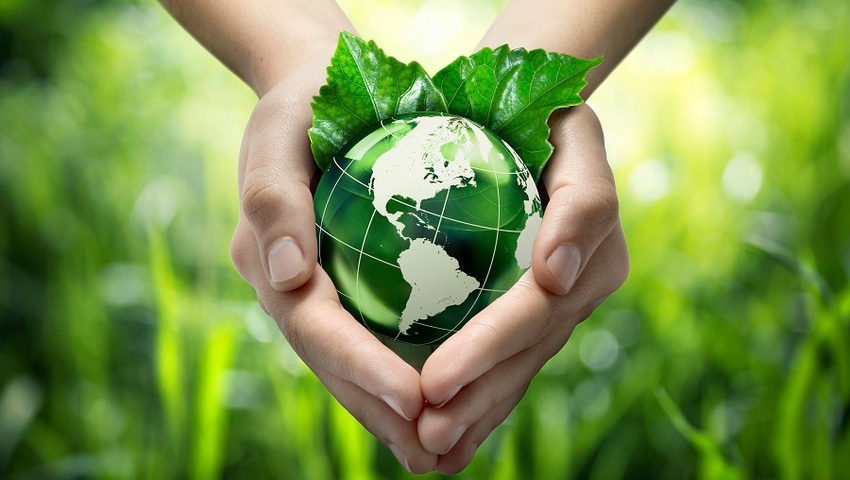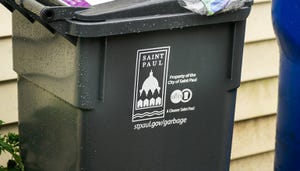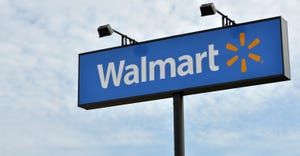How Companies Can Build a Sustainable Brand

Customer expectations for sustainable business practices and products continue to rise.
Companies are scrambling to either catch up to conscious consumer demands or navigate the landscape as they begin to scale. A recent session at Natural Products Expo West titled, "Developing a Sustainable Business Roadmap: Innovative Entrepreneurs Share Their Learnings" explored how company founders and executives are focusing their efforts on sustainability and the challenges they are facing.
Three company executives shared the stories of their journey to building a sustainable brand.
TJ Stouder, CEO, HOLISTIK Wellness (CBD Wellness Products)
HOLISTIK Wellness was built on a mission of simplifying the journey to CBD wellness. Personally, I ran into the stigma myself around this plant of how difficult it will be for many consumers to discover the potential wellness properties of the plant. HOLISTIK was built to simplify that mission on our approachability to the convenience of a stir stick. You can pop and pour our powder into any beverage and stir, infusing whatever you're drinking quickly and easily making it accessible to the consumer wherever they are, whenever they are. Next, we made targeted all natural formulations. They're differentiated by one to two other natural ingredients that say what they are. For example, there's stress, sleep, recover, beauty and digestion.
As a young entrepreneur who just left the big CPG world, I was on a personal mission to find something more sustainable. Soon as I ran into the stick, it was a perfect solution for my consumer, but that personal mission of single-use plastic. Our stick is fully recyclable and we do not hide from the fact that plastic, sadly, fully recyclable normally answers the question and as you'll learn from some of our great other companies in this group, recycling isn't really working. Unless I can make that same stick out of the one that you put into the recycling bin, it's difficult to say that it was recycled. For me, looking at the year of 2020, recycled single-use plastic is everywhere from our masks to our hand sanitizer bottles. It's frustrating that businesses are forced into making choices of cheap plastic as a way to make things convenient. So for us, we're investing in finding an alternative plastic that can make the strength of our stick for that consumer yet deliver the biodegradable needs on the back end for sustainability. We believe that answer is in hemp, which is super exciting to complete the story of holistic and that whole plant and putting it to use. However, it's taking time with the stigmatization and lack of research on hemp over the years. So, in the meantime, our sticks are fully recyclable.
Kassia Davis, Founder & CEO KADA (Fashion)
For most of us, thinking about fashion means envisioning the final product. The KADA team understands that it's actually how that product was made. That really matters. On a global scale, the clothing and textile industry sits right behind oil as the largest polluter in the world. The industry as a whole generates 208 million pounds of waste, and 20% of that wastewater comes from fashion. It can actually take more than 5000 gallons of water just to produce one t-shirt and one pair of jeans. That's an insane statistic. At KADA, we believe it's time for a change. We're committed to taking a stance, evolving the way that fashion gets made and setting a new standard for sustainable production and a cleaner, safer world.
KADA is a sustainable, female-led fashion brand that offers elevated essentials for the modern woman. Our ultimate goal is to empower all females to express themselves and to never stop evolving, and we are committed to providing them with the right clothing to make that possible. Our clothing is made with purpose and worn with purpose. We continue to explore new ways to keep waste to a minimum, while also ensuring that our pieces are built to last. We truly believe that there is no place for waste in fashion.
At the core of KADA is a very robust sustainability strategy. Our entire product process revolves around it. We design and manufacture responsibly, which means we produce in very small batches. And we design using the same fit block across all of our core silhouettes. We also include consumer feedback, and our consumer as part of the design process so that we know we're only producing product that she's going to love. This helps us to lessen the risk of sitting on excess inventory, which could otherwise become waste. We use all recycled yarns in our core fabrics. We buy back deadstock fabrics from the industry, recycle them, give them a second life and incorporate them into our collection in order to create newness and freshness.
Dinesh Tadepalli, Chief Spoon Seller, incrEDIBLE eats inc. (Edible Spoons)
At an ice cream shop after eating ice cream for 10 minutes, I threw the plastic spoon [away]. I've been educated. I've been working for 10 years and I have never thought for a second "Why did I use a plastic spoon?" I looked into the bin and there were hundreds of them. And billions of people are doing this every single day without giving it a thought. By 2050, there will be more plastic than fish in the oceans by weight and it's getting worse because people are consuming microplastics right now in the food chain. And in order to avoid that, we introduced the world's first manufacturable edible spoons. Yes, you can eat your spoon today. Our spoons are edible. They're made from non-GMO grains. And if you don't have the appetite to eat them, they're compostable.
And a lot of companies that I've worked with, small shops, big ice cream shops, even big chains, they ask why is it so expensive? But there is a hidden opportunity on top of being super sustainable. Companies can actually make margins by adding this as a default topping for an ice cream or even a soup. And that gives them additional profits as well as making sure that they're not consuming plastics. So, it's not just truly being sustainable, but it also helps you make some profits as well. We had this group we had worked with and 91% of the members preferred an edible plastic spoon. This shows that consumers are looking for alternatives to plastic and, better yet, 70% of them are willing to pay a premium for it. So, people are willing to pay a premium to save the planet for future generations.
About the Author(s)
You May Also Like




